Nigeria's prisons problem: 'People die every day'published at 00:11 GMT 15 February 2022
Joy’s husband died in custody after three years in prison. He was one of thousands of Nigerian inmates detained without trial.
Read MoreThis is an automated feed overnight and at weekends
Joy’s husband died in custody after three years in prison. He was one of thousands of Nigerian inmates detained without trial.
Read MoreThe Chagos Islands, in the Indian Ocean, is controlled by Britain, but claimed by Mauritius.
Read MoreThe final 10 qualifiers for the Women's Africa Cup of Nations will be decided this month - and 10 sides will be eliminated from Women's World Cup qualifying as a result.
Read MoreAbba Kyari, already accused of money laundering, is now accused of being part of a drugs cartel.
Read MoreThe Mauritian government has led a trip to the disputed islands, which are controlled by Britain.
Read MoreWe'll be back on Tuesday morning
Until then you can find the latest updates on the BBC News website, or listen to our podcasts Africa Today.
A reminder of our African proverb of the day:
Quote MessageStupidity hurts the owner."
A Luo proverb sent by Felix Odongo in Nebbi, Uganda.
And we leave you with this photo of a rainbow over a food market in Nouakchott, Mauritania, by Mauritania based photographer DCorera:
Allow Instagram content?
This article contains content provided by Instagram. We ask for your permission before anything is loaded, as they may be using cookies and other technologies. You may want to read Meta’s Instagram cookie policy, external and privacy policy, external before accepting. To view this content choose ‘accept and continue’.
An Algerian court has sentenced the country's 82-year-old former energy minister to 20 years in prison and fined him $14,200 (£10,510) in absentia.
Chakib Khelil, who was found guilty of corruption, served under former President Abdelaziz Bouteflika.
Mr Khalil fled Algeria in 2019 after the resignation of Mr Bouteflika, according to the AFP news agency.
 BBC World Service
BBC World Service
A human rights organisation is preparing to take France to the International Criminal Court over compensation for victims of nuclear tests in Algeria during the 1960s.
The International Campaign to Abolish Nuclear Weapons (ICAN) Algeria claims many people suffered cancerous and genetic diseases following six years of nuclear explosions.
The French government has failed to respond to repeated demands for those affected to be compensated, the organisation says.
Algeria’s President, Abdelmadjid Tebboune has backed the compensation calls.
An African travel startup is taking on the American online rental firm, Airbnb.
Bongalo, is a hospitality platform founded in Cameroon, with properties in Rwanda and Cameroon.
Google is pouring more than $300,000 (£221,000) of equity-free funding into the business, and the platform plans to launch in four other African countries in 2022, and 20 countries within the next five years.
Bongalo’s founder Nghombombong Minuifuong told the BBC's Newsday programme western companies do not invest a lot in the African market hence the need for homegrown solutions.
"People are looking into homes they can stay in and not just in hotels and with the effects of Covid, more long-term affordable stays instead of just very many expensive hotels," he said.
Here is his full interview on Newsday;
The hospitality platform is designed for African travellers and is looking to expand
Bizuwork Olana
BBC News, Addis Ababa
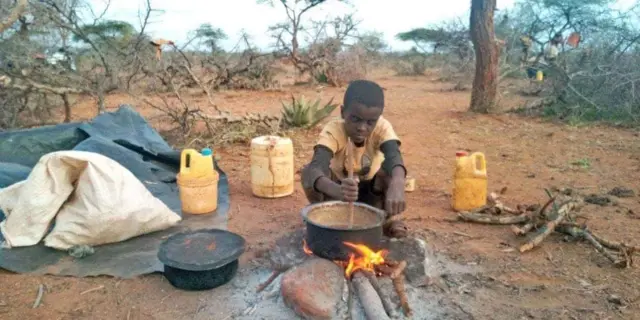 Image source, Boru Konso
Image source, Boru KonsoThe Ethiopian journalist who took the viral photo of a boy cooking in the desert alone has told the BBC the story behind the powerful image.
Boru Konso's photo has elicited a lot of reactions online and gotten well-wishers to donate money and items to the boy.
The journalist was riding his motorcycle in the rural district of Mio where he had gone to cover a story when he saw the boy late in the evening.
"The little boy probably under 10, had lit a fire and was cooking a meal. I was shocked when I saw this little boy cooking in a desert while he was alone. You can’t find a home in that area for around a 10km radius. I parked my motorbike and pictured him," Boru says.
The boy told the journalist that his family lives in a different district and he was moving around with their animals in search of water and pasture.
Ethiopia is currently experiencing a drought forcing pastoralists to move around.
Boru shared the photo of the boy on social media and people started reaching out to offer help.
Among those who have visited the boy is businesswoman Muna Bakare who donated food and other items to the boy, his family and neighbours.
"I saw the picture of this little boy on social media and it touched my heart. No sleep came to my eyes. I felt as if he was my son. So, I started searching for him," Muna said.
Muna has promised to pay for the boy's school until he finishes college.
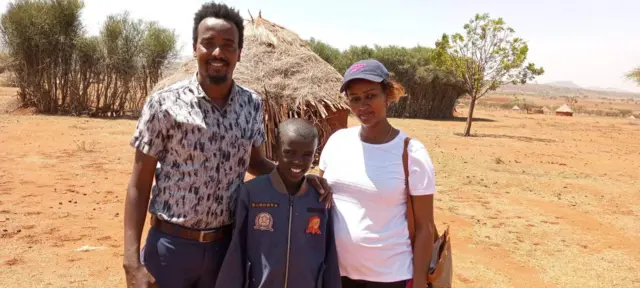 Image source, Boru Konso
Image source, Boru Konso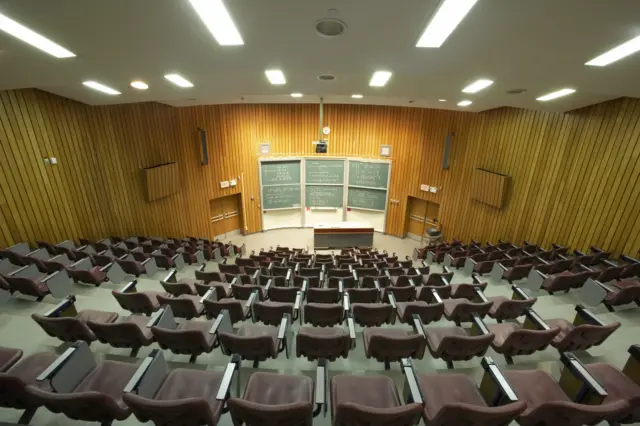 Image source, Getty Images
Image source, Getty ImagesThe union wants to avoid the action but is grieved over unmet demands, local media reports
The president of Nigeria's Academic Staff Union of Universities (ASUU) has announced a one-month strike with immediate effect.
The lecturers have grievances over pay and state funding of universities, amongst others.
The strike will be "comprehensive and total" Emmanuel Osodeke said in a press conference.
“We don’t like to see our students at home. We don’t want our academic calendars disrupted but our demands are not met,” Mr Osodeke is quoted as saying in local media., external
 Will Ross
Will Ross
Africa editor, BBC World Service
Pro-democracy protests are once again taking place in several cities and towns across Sudan as people reject October's coup and call for the release of recently arrested politicians.
Since last week three politicians who had once been in the ruling sovereign council have been detained.
They had all been part of a task force appointed to dismantle the economic and political networks set up during the former president Omar al-Bashir's rule of almost three decades.
Since the coup around 80 protestors have been killed by the security forces.
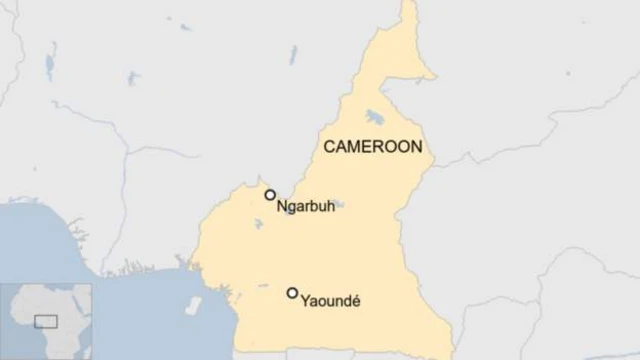
A rights group has criticised the "slow pace" and other alleged flaws of an ongoing trial, external into the massacre of 21 civilians killed two years ago in Ngarbuh, Cameroon.
An eyewitness who escaped the attack on 14 February 2020 by running into the bush told BBC Newsday that he had returned to find that victims had been shot and their bodies burnt, then dumped in at least three mass graves. He said other survivors saw the attackers, describing them as "wearing military uniforms".
The Cameroonian government initially denied allegations that the military was behind the attack, but an inquiry was launched weeks later following international outcry and in a U-turn the government said its forces did bear some responsibility.
Those now on trial are two soldiers, a gendarme, a former separatist fighter, and 17 ethnic-Fulani vigilantes, who remain at large, Human Rights Watch (HRW) says.
The rights group alleges that during the trial "the only witnesses so far did not see the killings and claimed the victims were separatist fighters". It also argues the court being 450 km (279 miles) from the victims' families homes means they do not have reasonable access, and claims that the presiding judge has a conflict of interests.
The Cameroonian government has not responded to the complaints outlined in HRW latest report.
Related stories:
 Will Ross
Will Ross
Africa editor, BBC World Service
A Ghanaian political activist has been charged with treason after being arrested on Friday for making comments on social media about a coup.
Oliver Barker-Vormawor has led protests against President Nana Akufo-Addo's government under the banner "Fix The Country".
A request for bail was turned down. He was detained after posting on social media that he would stage a coup if parliament passed a new bill which will impose a tax on mobile money transfers.
President Akufo-Addos's second term has featured several protests against government policies which are aimed at improving an economy that's been hit hard by the pandemic.
Nduka Orjinmo
BBC News, Abuja
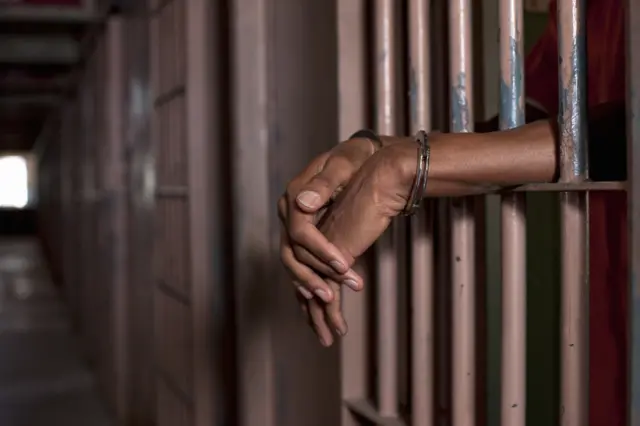 Image source, Getty Images
Image source, Getty ImagesAn investigation into the incident is currently underway, police says
A school teacher has been arrested in Nigeria for allegedly flogging a 19-month-old pupil to death, police says.
The teacher at a nursery and primary school in Asaba, Delta state, was alleged to have left several marks on the toddler’s body after flogging him last Monday.
The suspect, who is thought to be the son of the owner of the private school, allegedly started beating the pupil after he caught him playing with water.
He has not been reported to have commented on the incident.
The pupil was said to have fallen ill after the incident and was taken to the Federal Medical Centre (FMC) in Asaba where he eventually died.
Police spokesman DSP Dafe Bright told BBC Pidgin that the suspect would be charged for murder and manslaughter.
 Andrew Harding
Andrew Harding
BBC News, Johannesburg
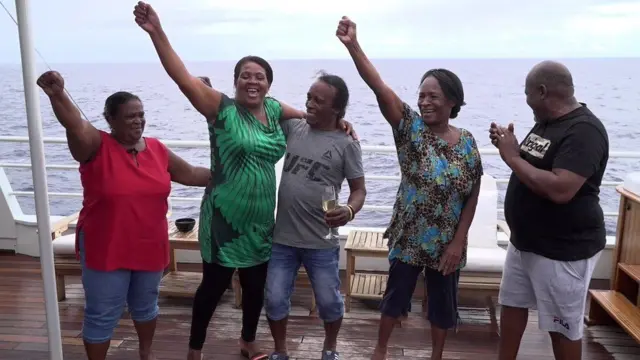
Some Chagossians evicted from the islands 50 years ago returned in a trip organised by the Mauritian government
The Mauritian flag has been raised for the very first time on the Chagos Islands in the Indian Ocean.
The Mauritian ambassador to the United Nations led a ceremony on the island of Peros Banhos, where a pre-recorded message from the Mauritian prime minister was played through a loud speaker.
Another flag was raised on the island of Salomon.
The islands are controlled by Britain but claimed by Mauritius.
The flag-raising was the culmination of a trip organised by the Mauritian government, which included a group of Chagossians evicted from the islands by the British government 50 years ago.
 BBC Monitoring
BBC Monitoring
The world through its media
Somalia's deputy speaker Abdiweli Mudey says he has been barred from travelling to Barawe town to seek a seat in the country's next parliament.
Mr Mudey, a long-time ally of President Mohamed Abdullahi Farmajo, told local media he was stopped from boarding a plane in Mogadishu on the orders of the South-West state regional administration.
Barawe is in South-West state.
But the privately-owned Hiiraan Online news portal said that “the order to prevent Mr Mudey from travelling was reportedly issued by Fahad Yasin", President Farmajo's security adviser.
Neither Mr Yasin nor the South-West state administration have commented on the accusations.
The development comes as a 25 February deadline looms for the completion of long-delayed legislative elections.
Last week, the US announced visa restrictions on unnamed Somali politicians it accused of "undermining the democratic process in Somalia".
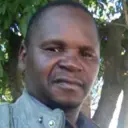 Jose Tembe
Jose Tembe
BBC News, Maputo
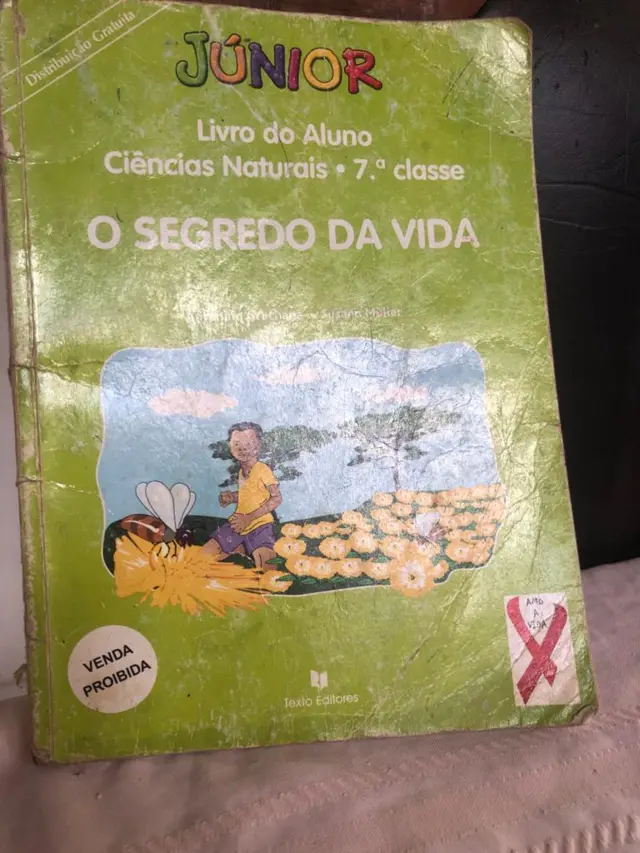
The natural sciences textbook is titled The Secret of Life
Mozambique is withdrawing from its education curriculum a book for 12-year-old grade seven pupils containing some controversial subjects on sexuality.
The natural sciences book addresses subjects such as masturbation and sexual orientation.
The education ministry says the book has been in use from 2004 but these topics "generating controversy in society" will no longer be taught.
Teaching issues on sexuality to young people is for some communities in Mozambique being considered a taboo.
Some also believe that sex education for children at this age group may promote premature marriages and early pregnancies.
The book will be replaced next year but the education ministry has urged schools "not to address these issues".
"We talked to the publisher to remove that page", said Ismael Nheze, the director of the National Institute of Education Development.
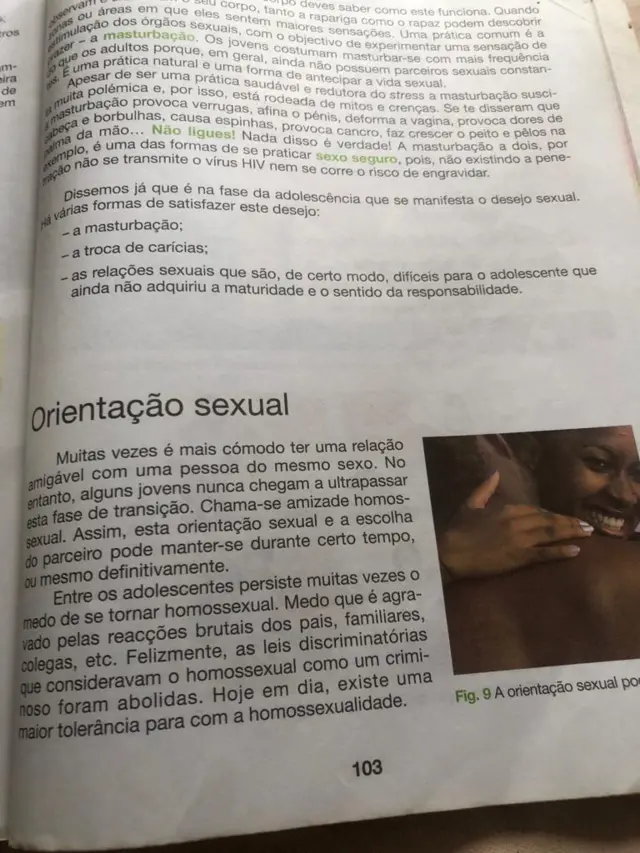
The education ministry has asked the publisher to remove this page
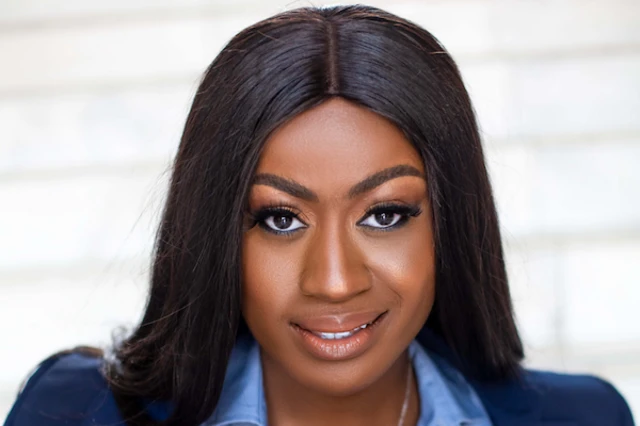 Image source, Dr Esperance Luvindao/Points of Light
Image source, Dr Esperance Luvindao/Points of LightA Namibian doctor has been awarded for offering free online consultation to people during the coronavirus pandemic.
Dr Esperance Luvindao won the Commonwealth Points of Light award for offering 44,000 sessions.
"I am beyond thrilled and we are honoured to accept the award! Like I always say, we do not do the work in order to be awarded but to be awarded for doing the work we love is a different kind of blessing," she said.
Dr Luvindao is a senior medical doctor from Windhoek.
She has done community service and has been outspoken on local media about patient care.
Dr Luvindao worked in northern Namibia where her passion to reach out to marginalised communities started.
She discovered patients were travelling 50km (31 miles) with a poor transport network to access medical centres.
Dr Luvindao also started the "1 Step at A Time" initiative that helped purchase medical equipment for village health practices, reaching thousands of patients in remote areas.
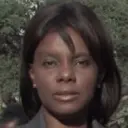 Shingai Nyoka
Shingai Nyoka
BBC News, Harare
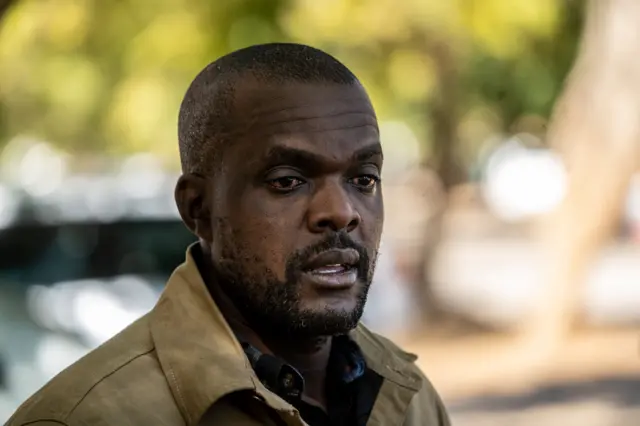 Image source, AFP
Image source, AFPJeffery Moyo faces up to 10 years in jail if found guilty
The trial of a Zimbabwean journalist accused of helping two New York Times reporters to enter the country illegally is due to resume on Monday.
Jeffery Moyo, a freelance reporter for the US publication, denies that he assisted them to obtain false media accreditation cards.
The two journalists - Joao Silva and Christina Goldbaum - were deported to South Africa days after their arrival.
Mr Moyo was arrested in May last year and went on trial in January.
If found guilty, he faces up to 10 years in jail.
More witnesses for the prosecution will take the stand as the trial resumes in the southern city of Bulawayo.
Mr Moyo, who says he was questioned by the anti-terrorism police unit, arrested and jailed without bail for three weeks, believes he is on trial for practising journalism.
International media groups have called on authorities to drop the charges.